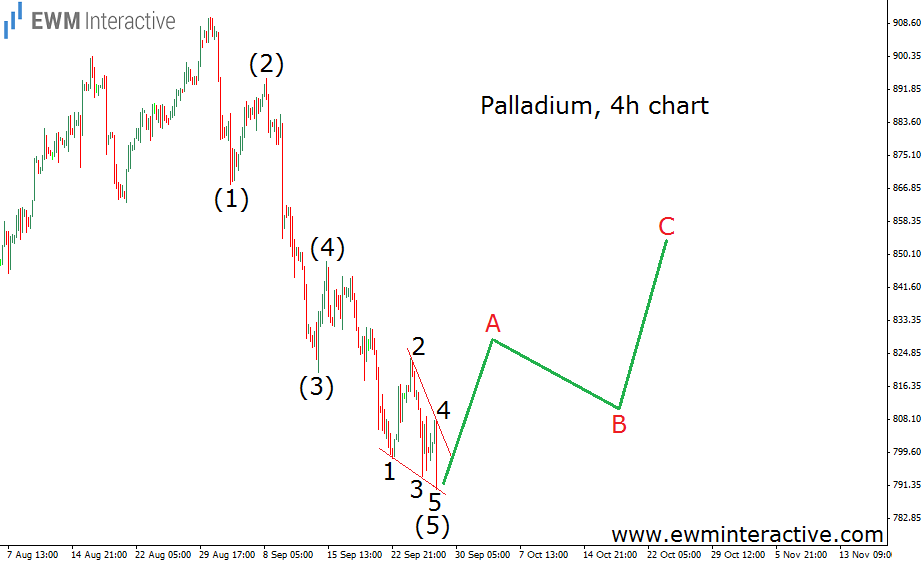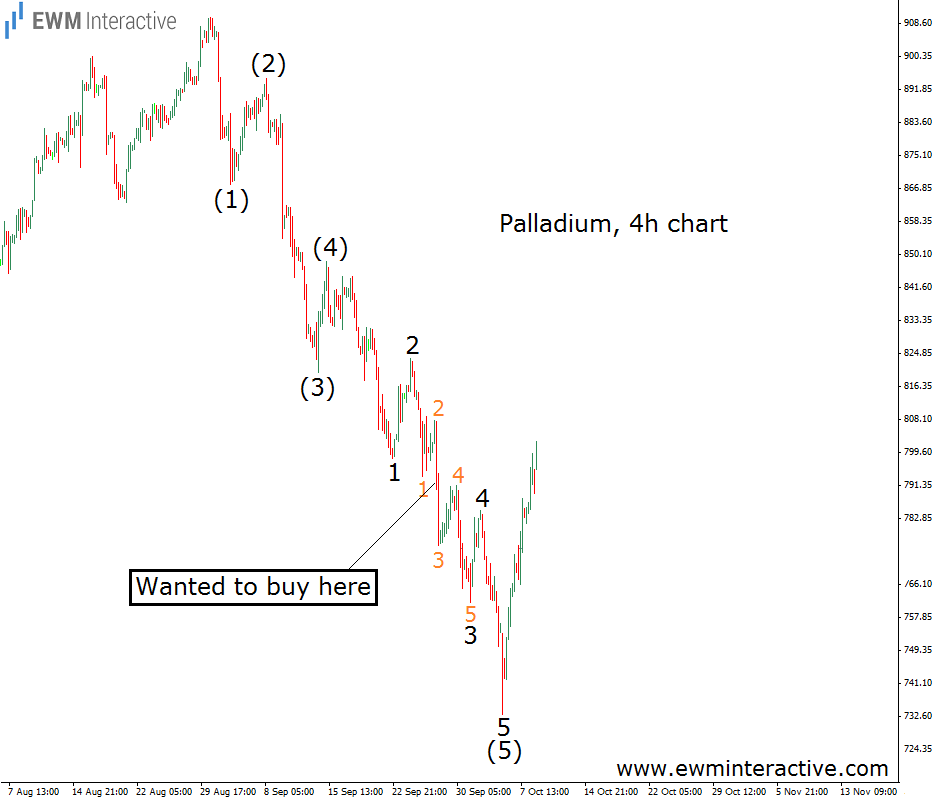Every trader with enough experience in the market usually comes to the conclusion, that he needs a system of rules to go by. Rules, which should not let him abandon his discipline and get emotional while trading. Every trading methodology has one such system, which tells you when to go in and out of the market. It sounds like “if this happens, I’m in” or “if this does not happen, I stay out”. Unfortunately, sometimes it could be extremely difficult to abide by these rules, because to the brain, emotions like fear or greed are more important than rational thinking. We, humans, have depended on these emotions and instincts, in order to stay alive throughout evolution. Fear made us run, if chased by a wild animal. Greed kept us from starving by making us store food for the bad days. Trouble is, that in the market environment, instead of keeping you alive, these emotions would likely destroy your account. But let’s take a look at a real-life example. The chart below shows one of the so-called “perfect situations” the market often uses to test our patience and self-control.

It occurred in September 2014 in Palladium. The chart depicts a nicely-looking five-wave impulse to the downside. According to the Elliott Wave Principle, every impulse is followed by a three-wave correction in the opposite direction. Furthermore, wave (5) looked like an ending diagonal, which is a reversal pattern itself. So, we had plenty of reasons to expect a three-wave recovery. The question was, should we try to pick a bottom and buy right there and then, or we should wait for the upper line of the diagonal to be broken by the price, which would have been our confirmation. Our self-control non-emotion rule. But why waiting for confirmation, when everything looks so perfect? Because of this:

The market simply continued lower. The upper line of the diagonal was never touched. The count, you thought you have, failed. But who lost money? It was not the calm confirmation-waiter. The impatient bottom-picker certainly did, since greed made him want to catch the whole move. See, the situation was absolutely the same for both traders, but the first one followed his rules and did not even open a position. The second one probably got angry and blamed the Wave Principle. As you can see, all the market did was to choose a different construction of waves. Instead of a diagonal, wave (5) was extended. You can even count its sub-waves as well as the sub-waves of wave 3 of (5). So, the Theory is not to blame. It was working perfectly. What IS to blame is the lack of discipline. That is why you should always wait for confirmation, when dealing with a potential reversal. And do not listen to Gordon Gekko. It turns out greed is not that good after all.
